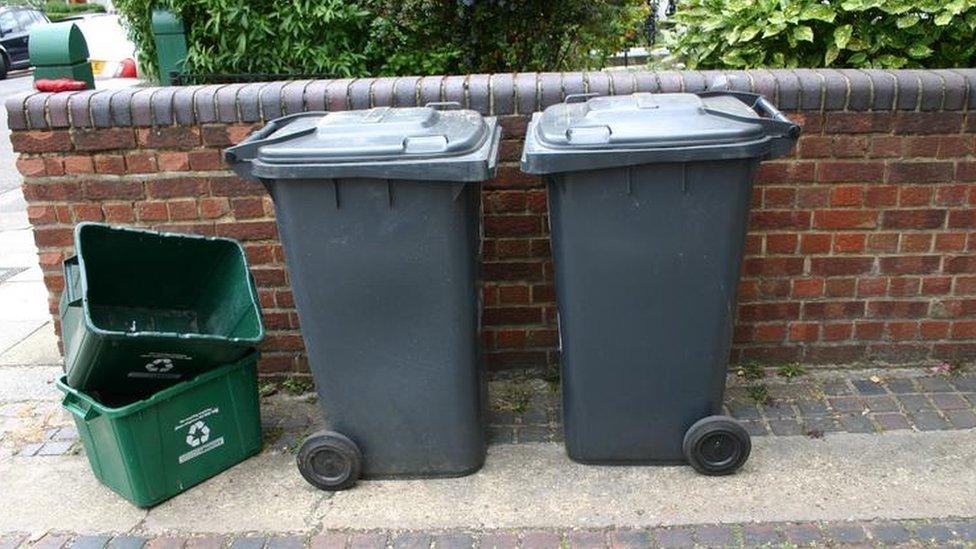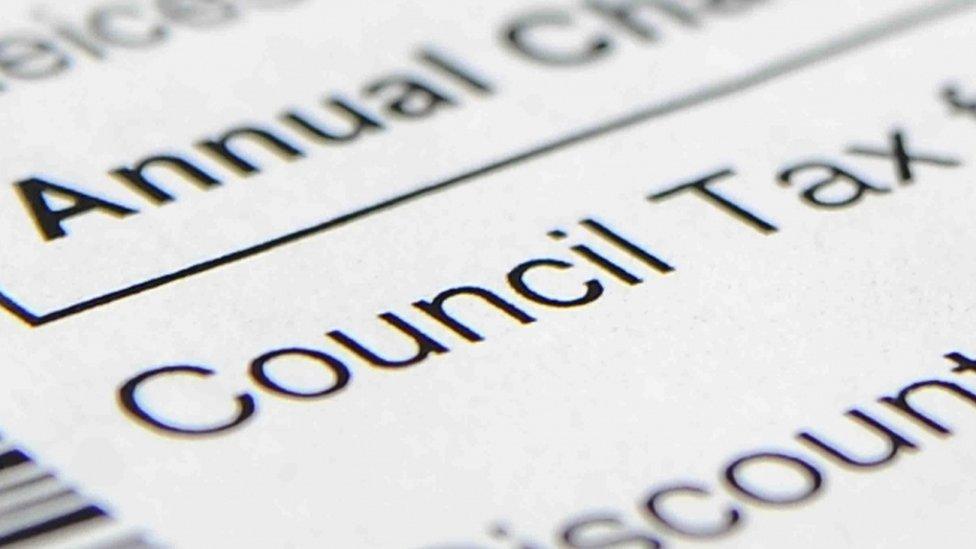Midlothian first Scottish local authority to increase council tax
- Published

Council tax bills typically bring in about 15% of a council's budget
Midlothian Council has become the first local authority in Scotland to put up household taxes following a nine-year freeze across the country.
The average Band D bill will rise by £36 a year to £1,246.
Western Isles Council decided later to increase the charge by 3%. Four other councils, including Edinburgh, are due to reach decisions on Thursday.
The council tax has not gone up anywhere in Scotland since 2007 after a Scottish government brokered deal.
The nine-year long national council tax freeze ends this year, and councils have the power to up the basic bill by up to 3%.
Many councils still have not indicated publicly what they are likely to do.
Raising the council tax will only generate a relatively modest amount for many councils.
In the case of Comhairle nan Eilean Siar (Western Isles Council) a 3% rise for everyone, together with the higher charges people in high band properties across Scotland will pay from April, will only raise about £500,000.
But with council budgets tight, this is still a significant amount.
All 32 councils will take decisions on the council tax in the next few weeks.
Edinburgh will be the first big council to decide whether to raise the council tax, with Aberdeenshire, Borders and East Renfrewshire also taking a decision on Thursday.
Edinburgh and Borders are both expected to raise bills by 3% while Aberdeenshire has proposed a 2.5% increase.
East Renfrewshire has made no statement of intent so far.
However, as a relatively prosperous area, it is set to receive a larger than average amount from the national changes to how much those in high band properties are charged.
A 3% universal rise on top of these changes could prove contentious locally.
Council tax bills across Scotland have not increased since 2007.

This will be the first time in a decade that council tax bills have risen in Scotland
Typically the council tax accounts for about 15% of a council's budget. Most of their cash comes from the business rates or the Scottish government.
This year councils have the power to put up the charge by up to 3% without losing government money.
The way the council tax works means that councils set the Band D charge - all other charges are a fixed proportion of this amount.
But the relationship is being changed, which will mean that people in Band E, F, G and H properties will pay more automatically.
Contentious issue
Local government finance is a contentious issue ahead of May's council elections.
Last Thursday the Scottish government agreed to give councils £160m more than it had originally planned to secure support for its budget from the Scottish Greens.
Most councils say they still face a cut in the amount of government cash they get for ongoing activities. Local government organisation Cosla says councils face £200m of cuts.
The government argued that even before the £160m is included, more was going to be available for local services in the coming years.
In these calculations it included the council tax changes, possible rises and new money including £120m which has to be given to headteachers to spend on schemes to raise attainment.
Although councils face difficult financial decisions, when they give headline totals for cuts and savings they are talking about more than the amount they get from the government.
They are also including, for example, the need to save money in one area because of increasing costs in another and the limited control they have of their finances.
Many have attempted to take hard choices in such a way as to minimise the need for controversial decisions on local services this year.

When is your council tax due to be set?
7 February - Western Isles, Midlothian
9 February - Edinburgh, Borders, East Renfrewshire, Aberdeenshire
15 February - Moray, Shetland
16 February - Highland, Renfrewshire, Inverclyde, Angus, Fife
21 February - East Lothian
22 February - West Dunbartonshire, Aberdeen, Falkirk, Perth and Kinross, Orkney
23 February - East Dunbartonshire, East Ayrshire, Stirling, Argyll and Bute, Dundee
28 February - Dumfries and Galloway
1 March - North Ayrshire
2 March - South Ayrshire
TBC - South Lanarkshire, West Lothian, Clackmannanshire, North Lanarkshire, Glasgow